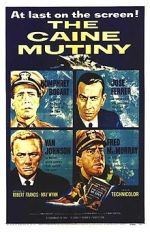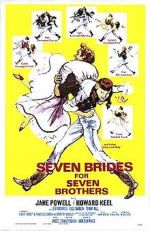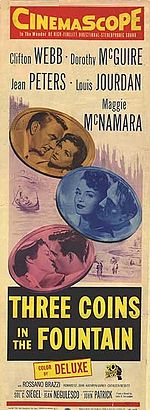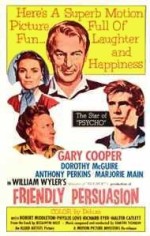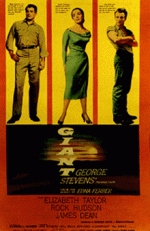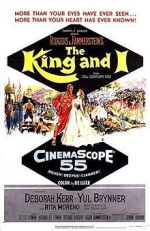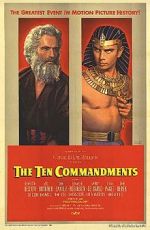Archive
EYE-BALL MovieZone – Oscar Movies 1954 …
 |
| EYE-BALL MovieZone – Oscar Movies 1954: |
 The Nominees for the Best Picture in 1954 were: The Nominees for the Best Picture in 1954 were:
1954 Nominees: [Oscar Best Picture Winner – highlighted – click Nominee Movie links provided to navigate your way up and down the page – each Movie has additional links to Bit Torrent “downloads’ links, Wikipedia Links for all the information about the nominated movie, and the EYE-BALL MovieZone Reviews and ratings. Movie posters appearing at this site have been copied from Wikipedia and other research related source sites.] Movie Links: Please Report any broken LINKS – E-Mail – blogcomment@bigpond.com
________________________________________
“On The Waterfront”: Movie Links: Please Report any broken LINKS – E-Mail – blogcomment@bigpond.com
Plot: [Pasted from Wikipedia] – This story of Mob informers was based on a number of true stories and filmed on location in and around the docks of Hoboken, New Jersey. Mob-connected union boss Johnny Friendly (Lee J. Cobb) gloats about his iron-fisted control of the waterfront. The police and the Waterfront Crime Commission know that Friendly is behind a number of murders, but witnesses play “D and D” (“deaf and dumb”), accepting their subservient position rather than risk the danger and shame of informing. Terry Malloy (Marlon Brando) is a dockworker whose brother Charley (Rod Steiger) is Friendly’s lawyer. Some years earlier, Terry had been a promising boxer until Friendly had Charley instruct him to deliberately lose a fight that he could have won, so that Friendly could win money betting against him. As the film begins, simple-minded Terry is used to coax a popular dockworker, Joey Doyle (Ben Wagner), out to an ambush, preventing him from testifying against Friendly before the Crime Commission. Terry resents being so used in the murder but is still willing to remain “D and D”. Terry meets and is smitten by the murdered Joey Doyle’s sister, Edie (Eva Marie Saint), who has shamed “waterfront priest” Father Barry (Karl Malden) into fomenting action against the mob-controlled union. Soon both Edie and Father Barry are urging Terry to testify. Another dockworker, Kayo Dugan, who agrees to testify after Father Barry’s promise of unwavering support, ends up dead after Friendly arranges for him to be crushed by a load of whiskey in a staged accident. As Terry, tormented by his awakening conscience, increasingly leans toward testifying, Friendly decides that Terry must be killed unless Charley can coerce him into keeping quiet. Charley tries bribing Terry with a good job, and finally threatens him by holding a gun up against him, but recognizes he has failed to sway Terry, who places the blame for his own downward spiral on his well-off brother. In one of the most famous scenes in film history, Terry reminds Charley that if it had not been for the fixed fight, “I coulda been a contender.” Charley gives Terry a gun and advises him to run. Friendly has been spying on the situation, so he has Charley murdered, his body hanged in an alley as bait to get at Terry. Terry sets out to shoot Friendly, but Father Barry obstructs that course of action and finally convinces Terry to fight Friendly by testifying. After the testimony, Friendly announces that Terry will not find employment anywhere on the waterfront. Edie tries to persuade him to leave the waterfront with her, but he nonetheless shows up during recruitment at the docks. When he is the only man not hired, Terry openly confronts Friendly, proclaiming that he is proud of what he did. Finally, the confrontation develops into a vicious brawl, with Terry getting the upper hand until Friendly’s thugs gang up on Terry and nearly beat him to death. The dockworkers, who witnessed the confrontation, declare their support for Terry and refuse to work unless Terry is working too. Finally, the badly wounded Terry forces himself to his feet and enters the dock, followed by the other longshoremen. EYE-BALL MovieZone Review … Brando in one of his famous roles – tough guy unionist – he pulls it off. A hard movie – about serious issues at the time … Recommended viewing if just to see Brando in his ‘Best Actor’ performance. The 4 academy Awards were well deserved in a year where the movies were not that strong … EYE-BALL MovieZone Rating [scale 0-10]: 5.5/10 … ________________________________________
“The Caine Mutiny”: Movie Links: Please Report any broken LINKS – E-Mail – blogcomment@bigpond.com
Plot: [Pasted from Wikipedia] – Callow, rich Ensign Willis Seward “Willie” Keith (Robert Francis) reports for duty aboard the Caine, his first assignment out of officer candidate school. Homeported in Pearl Harbor, he is disappointed and horrified to find the Caine to be a small, battle-scarred destroyer-minesweeper. Its gruff captain, Lieutenant Commander DeVriess (Tom Tully), has almost completely discarded spit-and-polish discipline, and the crew of the Caine has become slovenly and superficially undisciplined – although their performance of their duties is, in fact, excellent. Keith has already met the executive officer, Lieutenant Stephen Maryk (Van Johnson), and is introduced to the cynical communications officer, novelist LT Thomas Keefer (Fred MacMurray), who refuses to equate the Caine with the rest of the Navy. The captain is soon replaced by a 1936 graduate of the U.S. Naval Academy, Lieutenant Commander Phillip Queeg (Humphrey Bogart), a no-nonsense veteran who has seen years of stressful duty in the Atlantic Fleet, LCDR Queeg having served on convoy duty in the North Atlantic against the German Navy. Queeg quickly attempts to re-instill discipline into the crew, warning: “[T]here are four ways of doing things: the right way, the wrong way, the Navy way, and my way. If they do things my way, we’ll get along.” Keefer makes a slight remark comparing Queeg to Captain William Bligh, R.N. The next day, the Caine is assigned to tow a target for gunnery practice. Queeg berates both Keith and Keefer over a crewman’s appearance and, while distracted, cuts off the helmsman’s warning; as a result, the Caine continues in a circle and cuts the towline to the target. Queeg refuses to accept responsibility and tries to cover it up. Other incidents serve to undermine Queeg’s authority. A constant theme, when Queeg becomes nervous, he rolls two ball bearings in his right hand. When the remains of a quart of strawberries is stolen from the officers’ mess, the captain goes to absurd lengths to hunt the culprit. The truth of the missing strawberries, Ensign Harding told Queeg, “The mess boys ate the strawberries.” (During World War II, African-Americans in the segregated navy served as ship stewards called “mess boys”; after the navy was integrated, the “mess boy” duties went to Filipino sailors.) Queeg relates a story from 1937 when, as an Ensign on a cruiser, cheese was stolen. It was found that a seaman had a duplicate key to the ship’s pantry. Queeg found the guilty party and was commended for his actions. More seriously, in combat, Queeg breaks off escorting a group of landing craft during an amphibious assault long before they reach the fiercely defended shore, dropping a yellow marker in the water instead and leaving them unsupported, leading the crew to derisively sing “The Yellowstain Blues”. Afterwards, Queeg makes a speech to his officers, not explicitly apologizing for his behavior, but bending enough to ask for their support. His disgruntled subordinates do not respond. Keefer begins trying to convince Maryk that he should relieve Queeg on the basis of mental illness (Article 184). Keefer convinces Maryk and Keith to accompany him to the admiral’s flagship, and present their case against Queeg to Admiral William F. Halsey, Jr.. When Halsey’s aide tells the Caine officers that Halsey will see them, Keefer decides to back out and leaves the flagship as Maryk and Keith follow. Matters come to a head during a violent typhoon. Maryk urgently recommends that they steer into the waves and take on ballast, but Queeg fears that the ballast will foul the fuel lines with salt water. Queeg’s decisions seem to Maryk to threaten capsizing of the Caine. When Queeg appears to become paralyzed and unable to deal with the crisis, Maryk relieves him and takes over, with Keith’s support. When they return to port, Maryk and Keith face a court-martial for mutiny. After questioning them and Keefer, Lieutenant Barney Greenwald (José Ferrer) reluctantly accepts the job of Maryk’s defense counsel, which a number of other lawyers have already turned down. Greenwald is a decorated Naval Aviator, having been wounded in combat, and his right arm is bandaged. The proceedings do not go well, as the self-serving Keefer has carefully managed to cover himself and denies any complicity. It was he who encouraged Maryk to question Queeg’s sanity, playing amateur psychiatrist, and Greenwald has warned him in private that, under Naval Regulations (Article 186), Keefer could, on these grounds, be held as responsible as Maryk. A Navy psychiatrist, Dr. Dixon (Whit Bissell), testifies that Queeg does not have a mental illness, which the prosecution feels is enough to justify a conviction. But when Queeg is called to testify he snaps under Greenwald’s tough cross-examination and gives blatantly paranoid testimony. Maryk is acquitted, and Keith is spared any charges. After the acquittal, Maryk and his supporters celebrate at a hotel. Keefer joins them, not having the guts not to attend, although he lied in his testimony to protect himself. He thanks Maryk for not revealing this to the other officers. Maryk dismissively tells him that it is “over and done with,” but at that moment a drunken Greenwald shows up, and, claiming a “guilty conscience,” proceeds to reveal what really happened. Greenwald attacks the officers of the Caine for not appreciating the years of danger and hardship endured by Queeg, a career naval man, whereas the rest of them have only joined up due to the war. He then lambastes Maryk, Keith, and finally Keefer, for not supporting their captain when he most needed it and gets Maryk and Keith to admit that if they had given Queeg the support he had asked for he might not have frozen during the typhoon. Greenwald then turns to the man who, in his opinion, should really have been on trial: Keefer. He denounces him as the real “author” of the Caine mutiny, who “hated the Navy” and manipulated the others while keeping his own hands officially clean. Maryk tells Greenwald to “forget it” but instead the lawyer exposes Keefer’s double-cross in court, throws a glassful of champagne into his face and issues a contemptuous challenge: “If you wanna do anything about it, I’ll be outside. I’m a lot drunker than you are, so it’ll be a fair fight.” The other officers also depart, leaving Keefer alone in the room. A few days later, Keith reports to his new ship, a destroyer, and is surprised to find himself once again serving under now-Commander DeVriess as his captain. However, his new commanding officer lets the now Lieutenant, junior grade Keith know that he will start with a clean slate. EYE-BALL MovieZone Review … Bogart is brilliant as the ‘crazy’ skipper – Val Johnson equally so as the 2nd in Command that brings about the mutiny – and proved correct by Bogart’s brilliant unravelling under cross examination – Recommended viewing but the concept of crazy people in charge of Navy Warships is not something one wants to think about – at the time this movie was released – the ‘Cold War’ was beginning and if the Military propaganda machine had forsite – this movie would never have been made. EYE-BALL MovieZone Rating [scale 0-10]: 5.0/10 … ________________________________________
“The Country Girl”: Movie Links: Please Report any broken LINKS – E-Mail – blogcomment@bigpond.com
Plot: [Pasted from Wikipedia] – In a theatre where auditions are being held for a new musical production, the director, Bernie Dodd, watches a number performed by fading star Frank Elgin and suggests he be cast. This is met with strong opposition from Cook, the show’s producer. Bernie insists on the down-on-his-luck Elgin, who is living in a modest apartment with his wife Georgie, a cold and bitter woman who has aged far beyond her years. They are grateful, though not entirely certain Elgin can handle the work. Based on comments Elgin makes about her privately, Bernie assumes that Georgie is the reason for Frank’s career decline. He strongly criticizes her, first behind her back and eventually to her face. What he doesn’t know is that the real reason Elgin’s career has ended is the death of their five-year-old son Johnny, who was hit by a car while in the care of his father. Mealy-mouthed to the director’s face, Elgin is actually a demanding alcoholic who is totally dependent on his wife. Bernie mistakenly blames her for everything that happens during rehearsals, including Elgin’s requests for a dresser and a run-of-the-show contract. He believes Georgie to be suicidal and a drunk, when it is actually Frank who is both. Humiliated when he learns the truth, Bernie realizes that behind his hatred of Georgie was a strong attraction to her. He kisses her and falls in love. Elgin succeeds in the role on opening night. Afterward he demands respect from the producer that he and his wife had not been given previously. At a party to celebrate, Bernie believes that now that Elgin has recovered his self-respect and stature, Georgie will be free to leave him. But she stands by her husband instead. EYE-BALL MovieZone Review … Grace Kelly and William Holden steal this movie – Bing Cosby plays the drunk weak husband living with the guilt of responsibility for his young boys death. Kelly is the strong woman standing by her husband whilst having feelings for Holden’s character … its believable and works … One of the few movies where Kelly is not made up as a glamour character … she is wonderful and was a loss to the movies when she married … Crosby was never a big hit in movies in my opinion and this movie suffers from his cast type performance … EYE-BALL MovieZone Rating [scale 0-10]: 4.5/10 … ________________________________________
“Seven Brides for Seven Brothers”: Movie Links: Please Report any broken LINKS – E-Mail – blogcomment@bigpond.com
Plot: [Pasted from Wikipedia] – A backwoodsman named Adam Pontipee and his new bride Milly agreed to marry despite only knowing each other for only a few hours. On returning to his cabin in the mountains, Milly is surprised to learn that Adam is one of seven brothers living under the same roof. The brothers have been named alphabetically from the Old Testament and in chronological order are: Adam, Benjamin, Caleb, Daniel, Ephraim, Frank (short for Frankincense, the Old Testament having no names beginning with F), and Gideon. All of the brothers have red hair and are well over six feet tall, except Gideon, who is younger and shorter than his brothers. Milly teaches Adam’s rowdy, ill-behaved younger brothers manners and social mores. She also shows them how to dance. At first, the brothers have a hard time changing from their “mountain man” ways, but eventually each comes to see that the only way he will get a girl of his own is to do things Milly’s way. They are able to test their new manners at a barn-raising, where they meet six girls they like — Dorcas, Ruth, Martha, Liza, Sarah and Alice — and, fortunately, the girls take a fancy to the brothers as well. However, the girls already have suitors from the town, who jealously taunt the brothers into fighting during the barn-raising. At first the brothers try to resist and remember Milly’s teaching, but Adam refuses to let himself be pushed around by the rival suitors, who he sees as cowards taking advantage of his younger brothers. The rival suitors finally go too far when they attack Adam, which provokes his younger brothers into fighting back and a fierce brawl ensues wherein the brothers dominate their physically weaker rivals. Although the brothers do not start the fight, they are banished from the town after destroying the barn in the process. Winter arrives, with the six younger brothers pining for their girls. Adam reads his brothers the story of “Sobbin’ Women” (taken from Plutarch’s story of the Sabine Women) and tells them that they should stop moping around and take whatever action is necessary to get their women back. Aided by Adam, the brothers kidnap the girls, then cause an avalanche so that they cannot be followed by the townspeople. They have, however, forgotten to kidnap a preacher. Milly is furious at Adam, as are the girls at having been kidnapped. Milly consigns the brothers to the barn “with the rest of the animals” while the girls live in the house. Adam, surprised and offended by Milly’s reaction, leaves for the trapping cabin further up the mountain to live out the winter by himself. Months pass, and the girls vent their frustration and resentment by playing pranks on the brothers, such as hitting them with snowballs that have rocks in them. By spring the girls have forgiven and fallen in love with the brothers, who are now allowed to court them. Milly gives birth to a daughter, Hannah. Gideon rides to the cabin to inform Adam about his daughter’s arrival and asks him to come home. Adam refuses to do so, saying that he would return home only when the snow had melted enough and the pass was open once more to traffic. Having time to think about his baby daughter, Adam returns home in the spring just as the pass is opening and reconciles with Milly. As a newly responsible father, he has become aware of how worried the townspeople would be about what has happened to the girls. Realizing he was wrong to tell his brothers to kidnap the girls, Adam tells his brothers that they need to take the girls back to their homes in the town, but his brothers do not want to do so. The girls do not want to return to their homes, either — they all want to stay at the farm with their new suitors and thus go and hide so that they will not be taken back home. When Milly discovers that the girls are not in the house, Adam tells his brothers to go after the girls and bring them back. The townspeople arrive, with the intention of taking vengeance against the brothers for the kidnappings. Upon finding the brothers trying to force the girls to return, the fathers get the wrong impression, believing their daughters are being assaulted, and charge to their rescue. Alice’s father, who is a preacher, hears baby Hannah cry in the distance, and worries that the baby might belong to one of the girls. The fighting is finally sorted out, with the fathers rounding up the brothers and announcing that they intend to hang them. Alice’s father asks the girls whose baby he heard. They all decide, simultaneously, to claim the baby as their own. This misinformation gives the girls and the brothers their fondest wish—the townspeople insist that all six couples marry immediately in a shotgun wedding. EYE-BALL MovieZone Review … Howard Keel in all his glory – a wonderful story with great musical scenes and dance routines. A good light hearted movie confronting what men had to do to find a bride in pioneer towns of the West … if it were only as simple today … Recommended movie – not too serious and good lighted humour with great scenery and music. EYE-BALL MovieZone Rating [scale 0-10]: 5.5/10 … ________________________________________
“Three Coins in The Fountain”: Movie Links: Please Report any broken LINKS – E-Mail – blogcomment@bigpond.com
Plot: [Pasted from Wikipedia] – Three Coins in the Fountain is the 1954 film that introduced the song of the same name, which became an enduring standard. It tells the story of three American girls looking for romance in Rome while employed at the American Embassy. It stars Clifton Webb, Dorothy McGuire, Jean Peters, Louis Jourdan, Maggie McNamara and Rossano Brazzi. The fountain mentioned is the Trevi fountain. The movie was adapted by John Patrick from the novel Coins in the Fountain by John H. Secondari, and was directed by Jean Negulesco. It won Academy Awards for Best Cinematography, Color and Best Music, Song (for Jule Styne and Sammy Cahn for Three Coins in the Fountain). It was nominated for Best Picture. Two other films based on the same novel have been released. The first was the 1964 musical The Pleasure Seekers starring Ann-Margret and the second was the 1990 television movie Coins in the Fountain starring Loni Anderson. EYE-BALL MovieZone Review … A chick flick about dreams of romance and finding a husband – very dated and a tough watch … EYE-BALL MovieZone Rating [scale 0-10]: 3.5/10 … ________________________________________ [Just a small note – this is a free website – and the information posted hereto is the product of genuine research which has taken considerable time and effort. If you have enjoyed the product of these efforts a small donation would be appreciated. There is a gratuity/donation link provided to the right of this text – please if you have the time and are so inclined to want to make a donation – please use the link provided. All funds received are thankfully received and they go a long way to help maintain the content of this site.] All EYE-BALL MovieZone Links: Please Report any broken LINKS – E-Mail – blogcomment@bigpond.com
________________________________________ The EYE-BALL MovieZone … |
EYE-BALL MovieZone – Oscar Movies 1956 …
 |
| EYE-BALL MovieZone – Oscar Movies 1956: |
 The Nominees for the Best Picture in 1956 were: The Nominees for the Best Picture in 1956 were:
1956 Nominees: [Oscar Best Picture Winner – highlighted – click Nominee Movie links provided to navigate your way up and down the page – each Movie has additional links to Bit Torrent “downloads’ links, Wikipedia Links for all the information about the nominated movie, and the EYE-BALL MovieZone Reviews and ratings. Movie posters appearing at this site have been copied from Wikipedia and other research related source sites.] Movie Links: Please Report any broken LINKS – E-Mail – blogcomment@bigpond.com
________________________________________
“Around the World in 80 Days”: Movie Links: Please Report any broken LINKS – E-Mail – blogcomment@bigpond.com
Plot: [Pasted from Wikipedia] – The film begins with a special onscreen prologue introduced by broadcast journalist Edward R. Murrow. and featuring footage of an early science fiction/fantasy film by Georges Méliès, A Trip to the Moon (1902), which is based loosely on From the Earth to the Moon by Jules Verne.[3] Included also is the launching of an unmanned rocket and footage of the earth receding. Around 1872, an English gentleman Phileas Fogg (David Niven) claims he can circumnavigate the world in eighty days. He makes a £20,000 wager (equal to £1,324,289 today) with several skeptical fellow members of the Reform Club, that he can arrive back within 80 days before exactly 9:00 pm. Together with his resourceful valet, Passepartout (Mario Moreno “Cantinflas”), Fogg sets out on his journey from Paris via a hot air balloon. Meanwhile, suspicion grows that Fogg has stolen £55,000 (equal to £3,641,794 today) from the Bank of England so Police Inspector Fix (Robert Newton) is sent out by Scotland Yard to trail and arrest Fogg. Hopscotching around the globe, Fogg pauses in Spain, where Passepartout engages in a comic bullfight. In India, Fogg and Passepartout rescue young widow Princess Aouda (Shirley MacLaine) from being forced into a funeral pyre with her late husband. The threesome visit Hong Kong, Japan, San Francisco, and the Wild West. Only hours short of winning his wager, Fogg is arrested upon returning to London, by the diligent yet misguided Inspector Fix. At the jail, the humiliated Fix informs Fogg that the real culprit was caught in Brighton. Though eventually exonerated of the charges, he has lost everything — except the love of the winsome Aouda. But salvation is at hand when Passepartout realizes the next morning that, by crossing the International Date Line, they have gained a day. There is still time to reach the Reform Club and win the bet. To the surprise of all waiting at the club, Fogg arrives just before the clock’s chime at 8:45 pm. Aouda and Passepartout then arrive. Noticing Fogg’s whole travel party has arrived, the Reform Club announces the completion of the journey. EYE-BALL MovieZone Review … Not my type of movie – fantasy epic that long ago lost any appeal – Would not want to watch it again. Well acted with Niven delightful as always with his english toff accent – but in a year of exceptional movies and epics that carry great viewing pleasure even now – how this movie was given the Best picture gong astounds me. EYE-BALL MovieZone Rating [scale 0-10]: 5.0/10 … ________________________________________
“Friendly Persuasion”: Movie Links: Please Report any broken LINKS – E-Mail – blogcomment@bigpond.com
Plot: [Pasted from Wikipedia] – The film tells the story of a pacifist Quaker family in southern Indiana during the American Civil War. The father of the family is gradually converted to supporting the war. The protagonist of the story is Jess Birdwell (Gary Cooper) the patriarch of the Birdwell family whose worldliness is forever coming in conflict with his being a Quaker. Jess’s wife Eliza (Dorothy McGuire) is a deeply religious woman and is steadfast in her refusal to engage in violence of any sort. Jess’s daughter Mattie (Phyllis Love) wants to remain a Quaker but has fallen in love with a dashing cavalry officer (Peter Mark Richman), a love that is against her mother’s wishes. Jess’s youngest child “Little” Jess (Richard Eyer) is a feisty child whose comical feud with his mother’s pet goose causes her nothing but heartache. Jess’s eldest son Josh (Anthony Perkins) is a young man torn between his hate for violence and the knowledge that to protect his family he must join the military and fight the invaders. We are introduced to the family via its youngest member, “Little” Jess, who is forever at war with his mother’s pet goose. The story begins as an easygoing and humorous tale of Quakers trying to maintain their faith as they get ready and then go to Meeting on a Sunday. The mood shifts dramatically when the meeting is interrupted by a Union officer who asks how the Quaker men can stand by when their houses will be looted and their families terrorized by the approaching Confederate army. He questions various young men specifically, doubting their courage and suggesting that they are hiding behind their religion out of fear. When directly confronted with the question of his being afraid to fight, Josh Birdwell responds honestly that it might be the case. His honesty provokes the wrath of Purdy, a Quaker elder who is quick to condemn people who don’t believe as he does. The film returns to comedy as the Quakers try to maintain their ways, but one is always reminded throughout that the Confederate Army is drawing closer every day. When the Confederates finally arrive, the situation turns deadly serious. Jess is cultivating his fields when he notices an immense cloud of smoke on the horizon, the kind that can only be produced by the burning of a city. Josh soon arrives and tells them the entire neighboring community has been reduced to a land of ash and corpses. Josh believes that he must fight, a conviction that threatens to destroy the family. Eliza tells him that by turning his back to their religion he’s turning his back on her, but Jess sees things a different way, explaining to her: “A man’s life ain’t worth a hill of beans except he lives up to his own conscience.” With the story’s climax at hand, each member of the family is forced in their own way to confront the question of whether or not it is ever right for a Christian to engage in violence. EYE-BALL MovieZone Review … Never been a big fan of Gary Cooper – he plays a Quaker in a father role with a grown family mixed up in the Civil War. The movie resonates with minority groups and America’s willingness to make movies exploiting the quirkiness of these minorities. The awareness factor raised the profile of these types of minorities and they were always pitched against the ‘real’ America nd how they could abstain from the better quality of life on offer. Once again the movie has dates and it is not a movie I would want to freely watch again. I can’t remember a scene that stayed with me. EYE-BALL MovieZone Rating [scale 0-10]: 4.5/10 … ________________________________________
“Giant”: Movie Links: Please Report any broken LINKS – E-Mail – blogcomment@bigpond.com
Plot: [Pasted from Wikipedia] – Jordan “Bick” Benedict (Rock Hudson), the head of the rich Benedict ranching family of Texas, goes to Maryland to buy a stud horse, War Winds. There he learns that this is the favored mount of the socialite Leslie Lynnton (Elizabeth Taylor), and is instantly smitten by her beauty. Despite signs that she does not see Texan history as he does, and his knowledge that she is engaged to a diplomat (Rod Taylor, credited at the film start as Rodney Taylor), he courts her vigorously and marries her to take up life with him in Texas. and becomes his wife. They return to Texas to start their life together on the family ranch, Reata, where Bick’s sisyer Luz (Mercedes McCambridge) is head of the household. Luz resents Leslie’s arrival and tries to subdue her. Jett Rink (James Dean) works for Luz and hopes to find his fortune by leaving Texas; he also has a secret love for Leslie. Luz expresses her hostility for Leslie by mounting War Winds and cruelly digging in her spurs. The horse rebels and throws her. Coincidentally, Jett is giving Leslie a tour in a ranch car of part of the property and she learns that on part of it is a community of Mexican farm workers bedevilled by illness, for whom medical care is unavailable. That evening, Luz dies of her injuries and Bick shoots him, a decision Leslie accepts. She corrals the doctor called to the ranch to care for for Luz, and compels him to attend to the ailing farm workers despite Bick’s complaint that traditionally, doctors don’t treat Mexicans on the ranch. In her [will (law)|will]], Jett is left a small plot of land within the Benedict ranch. Bick tries to buy this, but in honor of Luz, Jett refuses. Jett keeps the fenced off waterhole as his home and names the property Little Reata. Leslie eventually gives birth to twins, Jordan “Jordy” Benedict III (Dennis Hopper) and Judy Benedict (Fran Bennett), and a younger daughter named Luz II (Carroll Baker). Leslie is offended by the Texan principle that women have no no part to play in business and political discussions, and she is not allwed even to hear them. Her repeated efforts to join in are all rebuffed. Jett discovers traces of oil in a footprint left by Leslie and drills. He hits his first gusher and covered in oil, drives to the Benedict yard to proclaim to the family and guests that he will be richer than the Benedicts. After Jett makes a rude sexual remark to Leslie, Bick punches him. As Bick’s friends hold him to restrain him, Jett recognizes that he is defenseless and hits him several times, then drives off. In the years before World War II, Jett prospers through his oil drilling company, named ‘Jetexas’. Determined to remain a cattle rancher like his forefathers, Bick rejects several offers to drill for oil on his much larger ranch. In postwar years, tensions in the Benedict household revolve around how the parents want to bring up their children. Bick insists that Jordy must succeed him and run the ranch, just like his dad and grandfather before him – but Jordy wants to be a doctor. Leslie wants Judy to attend finishing school in Switzerland, but Judy loves the ranch and wants to study animal husbandry at Texas Tech for her education. Both children succeed. After war breaks out, Jett visits the Benedicts to convince Bick to allow oil production to help the war effort. Recognizing that his children will not take over the ranch when he retires, Bick concedes. Both Bick and Jett now have drinking problems and Jett is a violent drunk. Luz II, now a teen-aged girl, starts flirting with Jett. Once oil production starts, the wealthy Benedict family becomes even wealthier, depicted by the addition of an elaborate swimming pool next to the house. The Benedict/Jett Rink rivalry continues however, and it comes to a head when the Benedicts find Luz II and the much older Jett have been dating. At a huge gala Jett organizes in his own honor, an irate Jordy tries to fight him, after his Mexican American wife, Juana (Elsa Cárdenas), had been repeatedly insulted by Jett employees due to her race. Again, Jett unleashes violence on a defenseless man. As his goons hold Jordy, Jett punches him out in front of a crowd, and thrown out. Fed up, Bick then challenges Jett to a fistfight. Weaving drunk and almost incoherent, Jett leads the way to a wine storage room. Seeing that Jett is in no state to defend himself, Bick lowers his fists, says “You’re not even worth hitting. … You’re all through,” and leaves, but not before toppling Jett’s wine cellar shelves domino style. The grand public occasion in front of Texas’s top citizens ends when Jett, completely drunk, falls face down and sleeping on the table from his seat of honor for the occasion. Guests all leave. Later, Luz II is taken to see him part-recovered from his stupor, orating to an empty room and disclosing that his sexual interest in the young girl is only his attempt to possess her mother symbolically. Luz II continues to like boys, as a later scene makes clear. The next day, the Benedicts, all except Jordy, drive down the empty road to a diner. Again, Juana and he little boy are insulted racially in the hamburger restaurant they stop at, and when the proprietor, Sarge (Mickey Simpson), a few minutes later insultingly starts to physically eject an old Mexican man who arrives to eat there, Bick tries to discourage him. This leads to a hard-fought fistfight, which Bick clearly loses, and Juana, Leslie and Luzz II, horrified witnesses, all dislike. Back at the ranch, Bick and Leslie watch their grandchildren, blonde and Latino, and reflect on their life and family. Leslie tells Bick that, after watching him lose the fight in the diner, she respects his evolution in understanding the concerns of people unlike his wealthy family, and considers the Benedict family a success. EYE-BALL MovieZone Review … AN epic movie with very few low points – Loved the Hudson/Taylor connection – James Dean’ lqast movie role before he died in a car accident befor the movie was completed … just a good story with strong performances fro all concerned … Recommended Viewing. EYE-BALL MovieZone Rating [scale 0-10]: 7.0/10 … ________________________________________
“The King and I”: Movie Links: Please Report any broken LINKS – E-Mail – blogcomment@bigpond.com
Plot: [Pasted from Wikipedia] – Mrs. Anna Leonowens (Deborah Kerr), a widow from Wales, arrives in Bangkok with her young son, Louis, to teach English to the children of the royal household of King Mongkut (Yul Brynner). She is escorted to the palace by the King’s sinister right-hand man, the Kralahome, of whom she is very apprehensive – she and her son must disguise their fear (“Whistle A Happy Tune”). She is greeted, but told she will stay in the palace, although the king promised her she would have a house. She demands to see the King and does see him. The King is pleased with her, and takes her to meet his wives and his fifteen children that live in the palace (he has sixty-seven more). She is charmed by the children, and agrees to stay and teach them. Here she meets a new, young wife – a Burmese girl named Tuptim, who arrived shortly before Anna did. She is unhappy living at the castle, because she is in love with Lun Tha, the man who had brought her to Siam from Burma. The King’s wives come to help Anna settle in to her new home, and discover a photo of her husband. Anna reminisces about her days with Tom, and gives her blessing to other young lovers, who are like they used to be, (“Hello Young Lovers”). The King is troubled – he craves truth, but how can he learn the truth when different cultures say different things? (“Is A Puzzlement”) As Anna teaches her lesson to the children, she explains that getting to know people is her favorite thing to “teach” (“Getting to Know You”). The lesson goes on and the children start to not believe in the things she is teaching them, such as snow and Siam’s small size. The King intervenes and scolds his children for not believing her. Late one night, the King summons Anna to talk to her about the Bible, and how Moses says the world was created in six days. The King of Siam thinks Moses is a fool – he thinks that the world took many centuries to create. They have a small argument about the Bible in which Anna stands above the King. Due to the Siamese custom that no one’s head should be higher than the King’s, Anna is forced to sit on the floor as the King has her write a letter to U.S. President Abraham Lincoln, telling him he will send male elephants to America to help with the Civil War. Anna tries to tell him that the elephants will not last long if only male elephants are sent, but the King loses interest and tells her to finish the letter herself. Before this, Anna has to have her head lower than the king’s, which she first refuses, until the king loses his temper, forcing her to kneel and lie on the floor. Anna goes outside, where she meets Lun Tha and learns that he and Tuptim have been meeting in secret. He asks Anna to fetch Tuptim. Anna refuses at first, afraid of the consequences if the lovers are caught, but, remembering her own happy days with her husband, Tom, she relents. The lovers meet (“We Kiss In A Shadow”), and Lun Tha promises that when he comes again, he and Tuptim will escape from Siam. Later, the King is told that England thinks him a barbaric leader, so he and Anna plan an English style feast for many European officials. Anna helps to make some of the ladies’ European dresses, and also orders food and teaches the orchestra European music. She is appalled to find that she only has one week to do this in, but the King reminds her that according to Moses, the whole world was created in one week. Anna dresses the ladies up in English clothes, but forgets to give them undergarments. She is horrified on discovering her mistake, and entreats the ladies to keep their backs to the wall when presented to the Ambassador. But at the sight of the Ambassador’s spyglass, the ladies flee in panic, exclaiming that he has the head of a goat. The Ambassador arrives, along with his aide Sir Edward Ramsey, with whom Anna was in love before she met Tom – in fact, Edward did once ask for her hand in marriage. He waylays Anna as she goes to help the King with the seating, and they reminisce and dance together, which the King walks in on and is highly jealous. The King offers his arm to her and leads her to dinner, where the guest are entertained by the King’s intellectual observations, and Tuptim’s theatrical version of Uncle Tom’s Cabin, which she narrates. When the play is over, however, she escapes with her lover. Anna and the King talk after the feast, and he gives her one of his rings as a present. Anna is quite taken by this gesture. It is here that the movie seems to show that they have fallen in love with each other, even though the King rejects the idea. The king recites a poem, known as the “Song of the King” where he states that women are “blossoms” and that men are “like Honeybees”, and declares that “honey bees must be free” to “Fly from Blossom to Blossom”, however, “blossoms must not ever fly from bee,to bee to bee”. Anna laughs at the poem, however. She then teaches him how to dance the polka (“Shall We Dance”). However, they are interrupted by the Kralahome, who explains that Tuptim has been found and the King is told of her lover. He decides to whip her, but Anna calls him a barbarian, and says that he has no heart. He is unable to beat Tuptim and runs off in humiliation, and Anna gives back the ring and decides to leave Siam. Tuptim is led off in tears after an official announces that the corpse of Lun Tha has been discovered in the river. She is not seen again in the film. Anna, thinking that she can no longer be of any use, is just about to leave Siam when she is told that the King is dying. His health has steadily declined ever since Anna called him a barbarian, and he has refused any help. She goes to his bedside and he gives her back the ring, pleading with her to wear it and saying that she has always spoken the truth to him. She decides to stay in order to help his young son, the Crown Prince Chulalongkorn, rule the people. As the prince is making his first statements as King, declaring the end of slavery in Siam, and stating that the King’s subjects will no longer bow down to him but rather stand at attention, the King dies, only Anna and the Kralahome noticing. The film ends with Anna laying her head on his hand. The film makes Tuptim’s ultimate fate more ambiguous. In the stage version, when she hears of Lun Tha’s death, she exclaims “Then I shall join him soon”, implying that the King’s soldiers will execute her (which is what happens to her in the film Anna and the King of Siam and the 1999 Anna and the King). In the 1956 film version of The King and I, Tuptim, when hearing of Lun Tha’s fate, exclaims “Dead! Oh, no!”, and begins weeping uncontrollably as the soldiers drag her off. She is not seen in the film again. Otherwise, the film makes almost no changes from the stage version, other than the deletion of several songs and the addition of a choral finale. EYE-BALL MovieZone Review … A real gem of a movie – Deborah Kerr is one of her finest roles and Yul Bruner as the King – even though he can’t sing manages to pull of the role with distinction – loved the “Uncle Tom’s Cabin’ production by the Siamese troop – was a highlight of the movie – has dated somewhat with the ethnic and ‘slave’ issues but the real winner of the movie are the lavish sets and costumes … A delightful viewing experience and it had been some time since I had seen this older version. Recommended viewing. EYE-BALL MovieZone Rating [scale 0-10]: 7.0/10 … ________________________________________
“The Ten Commandments”: Movie Links: Please Report any broken LINKS – E-Mail – blogcomment@bigpond.com
Plot: [Pasted from Wikipedia] – The film covers the life of Moses from his discovery in a basket floating on the Nile as a baby by Bithiah, a childless young widow and daughter of the then-Pharaoh, Rameses I, to his prohibition from entering the land of Israel in the wake of God’s judgment on him at the waters of Meribah. In between, the film depicts the early adulthood of Moses as a beloved foster son of Pharaoh Seti I (brother of Bithiah) and general of his armies, his romance with Throne Princess Nefertari (or Nefretiri, as she is called in the film) and rivalry with the Pharaoh’s own son, the future Pharaoh Rameses II. Shortly after Moses’ birth, Rameses I had ordered the slaying of all firstborn male Hebrews to prevent the prophecy of the Deliverer from coming true. Moses’ mother (called “Yoshebel” in the film) had set him adrift on the Nile to escape, with his sister Miriam watching from a hidden spot. Bithiah discovers the Ark while playing with other young women in the banks of the Nile. She orders them to leave, then shows her servant Memnet the baby. Memnet warned Bithiah that the swaddling cloth was Levite, so the baby was placed there to escape Bithiah’s father’s edict. But Bithiah declared that this baby would be her son, and named him “Moses” because she had drawn him from the Nile (the Hebrew name “Moshe” derived from the Hebrew word “Mashu”, meaning “to draw”). Despite Memnet’s protests about serving a son of Hebrew slaves, Bithiah ordered her to serve him and to swear to secrecy on pain of death. But Memnet hides the cloth under her clothes. As a young general, Moses is victorious in a war with the Nubian people of ancient Ethiopia, loosing captured ibises to combat the serpents (as recorded by Josephus) and further impresses Seti I by being wily enough to enter into an alliance with the conquered Ethiopians rather than subjugate them. Moses then is charged with building a treasure city for Seti’s Jubilee, which Rameses had failed to complete (probably the Biblical treasure cities of Pithom and Ramases (Avaris)). Meanwhile, Moses and Nefretiri are deeply in love; she is the “throne princess”, who must marry the next Pharaoh. Rameses wants her for himself, not because of any liking for her but for the throne, but Nefretiri hates him. She tells Rameses that she would never love him, to which Ramses responds, “does that matter?” When Moses assumes control of the project, he rescued an old grease-woman from being left to be crushed; unknown to him it was his birthmother Yoshebel. Moses tells the Egyptian Master Builder Baka, “blood makes poor mortar” and asks “are you a master builder or a master butcher?” And he frees Joshua the stonecutter who had struck an Egyptian, punishable by death, to try to save Yoshebel. Moses was impressed with Joshua’s bravery and words, and institutes numerous reforms concerning the treatment of the slave workers such as one day in seven to rest and even going so far as to raid temple granaries for necessary food supplies. Moses questions Joshua about his God, and Joshua declares his strong faith but says that God’s name is unknown. Rameses uses these changes as proof that Moses is planning an insurrection by currying the slaves’ favor, and points out that the slaves are calling Moses the “Deliverer” of prophecy. However, when Seti confronts Moses, Moses argues he is simply making his workers more productive by making them stronger and happier. He proves his point with such impressive progress on the project that Seti becomes convinced that Rameses falsely accused his foster brother. Seti promises that Moses will get credit for the new city. Rameses, meanwhile, has been charged by his father with the task of finding out if there really is a Hebrew fitting the description of the Deliverer, and is having no luck. As Nefretiri is joyously preparing for marriage, Memnet informs her that Prince Moses is not a prince at all, but the son of Hebrew slaves. Nefretiri is furious at the accusation, whereupon Memnet produces the Levite cloth and tells Nefretiri to wrap their firstborn in it. Memnet also tells her that a little girl had led her to Yoshebel to breastfeed Moses, which she realized must be the real mother. Nefretiri kills Memnet. After doing so, Nefretiri inexplicably tells Moses what she has done. Moses, unwilling to wait until he becomes Pharaoh, and thereby acquiring the legal ability to free his people, asks Bithiah about Memnet’s stories. Bithiah dissembles and reminds him of how he never doubted her when he held his hand as he took his first step. Moses leaves, promising that no matter what he finds, he will always love her. She rushes in a chariot to Yoshebel. Bithiah pleads with her not to reveal anything, since she has put the throne of Egypt within his grasp, and also declares how much she loved and cared for him, and promised to free them and make sure they were well cared for. But Moses has followed from a distance. Yoshebel cannot look him in the eyes and deny that she is his mother. And her robe matches the pattern of the much more faded Levite cloth Memnet kept. Then Yoshebel’s adult children, Miriam and Aaron introduce themselves to Moses as his sister and brother Bithiah sadly departs. Moses is determined to reveal his status as a Hebrew, effectively throwing away what he has gained at the Egyptian court. Declaring he is not ashamed, but curious, he spends time working among the slaves to learn of their hardship, only to be rescued from the mudpits by Nefretiri. Moses then saves Joshua’s life again. Baka, the master builder, had taken Joshua’s beloved, Lilia, intending to keep her as his sex slave until he would tire of her, whereupon he says he will return her to Joshua “more worthy.” Joshua attempts to rescue Lilia, and in the process, strikes the master builder. Baka then has Joshua tied between two pillars and is in the process of whipping him to death. At this point, Moses bursts on the scene, strangles Baka to death, and sets Joshua free. Dathan, the devious and ambitious Hebrew overseer who has been charged by Rameses to help him find the Deliverer, watches from hiding. Moses confesses to Joshua that he himself is Hebrew; Joshua excitedly proclaims Moses the Deliverer, and although Moses denies it, Dathan has all the proof he needs. Revealing what he knows to Rameses, Dathan bargains for Baka’s house, a post as Governor of Goshen and the ownership of Joshua’s betrothed Lilia. Moses is arrested and brought in chains before Seti, who begs him to say he is not the Deliverer. Moses does so, but avows that he would free the slaves if he could (and which he would have been able to do, if only he and Nefretiri had kept quiet, and Moses had been content to wait until he became Pharaoh). Bithiah confesses to her brother Seti that she took Moses from the Nile knowing by the design on his blankets that he was Hebrew. In a short, impassioned speech, Moses says that it is evil to enslave or oppress people, “to be stripped of spirit, and hope and faith, all because they are of another race, another creed. If there is a God, He did not mean this to be so!” Seti is grievously hurt, since he said that he had always loved him as a son, more than his own real son Rameses. So Seti imprisons him and orders his name stricken from all records and monuments, to be unspoken in Egypt forever thereafter. Asked what punishment Moses shall receive, Seti states that he is unable to speak it (tacitly admitting that ordinarily, the punishment would be death) and leaves the matter to Rameses’ discretion. Rameses banishes Moses to the desert, fearing to execute him lest he create a martyr. Meanwhile, Seti proclaims Rameses to be the next Pharaoh. Nefretiri as the Throne Princess is required to marry the arrogant prince, to her great distress. Lilia begs Dathan not to shame her before her people. Dathan reminds her that he is able to influence the decision on how to punish Joshua. He can be put to death or sentenced to work in the copper mines in Sinai. To save Joshua’s life, Lilia tearfully agrees to become Dathan’s mistress “of her own free will.” Moses makes his way across the desert, nearly dying of hunger and thirst. He comes to a well in the land of Midian. After drinking and eating dates from a nearby palm tree he passes out, to be awakened by the sound of seven sisters watering their flocks. Bullying Amalekites appear, pushing the girls aside, whereupon Moses wakes. Seemingly appearing out of nowhere he thrashes the Amalekites soundly with his staff, forcing them to wait their turn at the well. Moses finds a home in Midian with the girls’ father Jethro, a Bedouin sheik, who reveals that he is a follower of “He who has no name”, which Moses recognized as the God of Abraham. Jethro explains that they are the descendants of Ishmael, Abraham’s first-born. Moses later impresses Jethro and the other shieks with his wise and just trading, so Jethro offers Moses one of his daughters as a wife. Moses chooses the eldest daughter, called Sephora in the film (the Greek form of her name), the least flamboyant but wisest, who was previously the one who had stood up to the Amalekites. Back in Egypt, Seti dies heartbroken, with Moses’ name on his lips, and Rameses succeeds him as Pharaoh (becoming Rameses II), taking Nefretiri as his Queen. Herding sheep in the desert, Moses finds Joshua, who has escaped from hard labour in the copper mines. Moses sees the Burning Bush on the summit of Mount Sinai; climbing up to investigate, he hears the voice of God. Naming himself “I Am That I Am”, God charges Moses to return to Egypt and free His chosen people. At Pharaoh’s court, Moses comes before Rameses to win the slaves’ freedom, turning his staff into a snake to show Rameses the power of God. Jannes and another magician do the same, but Moses’s snake eats the others. But the Pharaoh decrees that the Hebrews be given no straw to make their bricks, but to make the same tally as before on pain of death. As the Hebrews prepare to stone Moses in anger, Nefretiri’s retinue rescues him; but when she attempts to resume their relationship, he spurns her, reminding her that not only is he on a mission, having been touched by God, but that he is also married. As Moses continues to challenge Pharaoh’s hold over his people, Egypt is beset by divine plagues. We see the water turned into blood, and hear of others. But Rameses hears of a naturalistic explanation of a mountain beyond the Nile cataract spewing red mud, although this would not have explained what the film showed: the red colour starting from where Aaron’s stick touched the river and moving away, or the water in pitchers turning red as it was poured. but given this explanation, Rameses declared it not surprising that fish would die and frogs leave the water, and flies would bloat upon their carcasses and spread disease. So Moses predicts hot hail and three days of darkness; the hot hail comes shortly after and bursts into flame on the ground. Moses warns that the next plague would come from his own lips. Enraged at the plagues and Moses’ continuous demands, and at his generals and advisers telling him to give in. Rameses orders all first-born Hebrews to die, but just as Moses had foretold, this intention backfires. Although Nefretiri warns Sephora to escape with Gershom on a passing caravan to Midian, Moses tells her sadly that it is her own son who will die, and he cannot save him. In an eerily quiet scene, the Angel of Death creeps into Egyptian streets in a glowing green cloud, killing all the firstborn of Egypt, including the adult son of Pharaoh’s top general, and Pharaoh’s own child. Meanwhile, Bithiah is released to Moses. Broken and despondent, Pharaoh orders Moses to take “your people, your cattle, your God and your pestilence” and go. Dathan is also ordered out when the Egyptian guards sees the sacrifice lamb’s blood on the sides of his door frame, his position as an overseer counting for nothing with the Egyptians, the Hebrews resentful of him and refusing him the privileges he expects. The Exodus of the Hebrews from Egypt begins. Goaded into rage by Nefretiri in her grief and anger at Moses, the Pharaoh arms himself and gathers his armies to chase the former slaves to the shore of the Red Sea. Held back by a pillar of fire, the Egyptian forces can only watch as Moses parts the waters to provide his people an escape route. As the Hebrews race over the seabed, the pillar of fire dies down and the army rides in hot pursuit. The Hebrews make it to the far shore just in time to witness God’s closing of the waters on the Egyptian army, drowning every man and horse. Rameses looks on in despair. All he can do is return to Nefretiri, confessing to her, “His god is God.” The former slaves camp at the foot of Sinai and wait as Moses again ascends the mountain. When Moses delays coming down from Sinai, the Hebrews lose faith and, urged on by the evil Dathan, build a golden calf as an idol to bear before them back to Egypt, hoping to win Rameses’ forgiveness. Aaron is forced to help fashion the gold plating. Dathan also orders Lilia to be sacrificed. The people proceed to indulge their most wanton desires in an orgy of sinfulness. Sephora, now re-united with Moses, tells the people that he has gone to receive God’s Law, and Bithiah asks, “Would the God who’s shown you such wonders let Moses die before his work is done?” But their defences are mostly disregarded after Dathan’s demagoguery. Meanwhile, high atop the mountain, Moses witnesses God’s creation of the stone tablets containing the Ten Commandments. When he finally climbs down, Moses beholds his people’s iniquity and hurls the tablets at the idol in a rage. The idol explodes, and Dathan and his followers are killed, a burning crevasse swallows all who do not join Moses at his side. After God forces them to endure forty years’ exile in the desert wandering lost to prove their loyalty, the Hebrews finally are on the eve of arriving in the land of Israel. An elderly Moses then appoints Joshua to succeed him as leader (with Lilia by Joshua’s side), says a final good bye to his devoted wife Sephora, and goes forth out of Israel to his destiny. EYE-BALL MovieZone Review … This was surely the year Yul Bruner arrived – his famous strut with arms folded were used in both ‘The Ten Commandments’ and ‘The King and I’ to great success. In any other year all these three epics – the above and ‘Giant’ – could have won Best Picture – each ran over 3 hours and were such contrasts – each plot and script has mass appeal to moviegoers. This is a movie you should see if it has been a while – Heston is magnificent and in his day – there was no fine an actor in a lead role. EYE-BALL MovieZone Rating [scale 0-10]: 7.5/10 … ________________________________________ [Just a small note – this is a free website – and the information posted hereto is the product of genuine research which has taken considerable time and effort. If you have enjoyed the product of these efforts a small donation would be appreciated. There is a gratuity/donation link provided to the right of this text – please if you have the time and are so inclined to want to make a donation – please use the link provided. All funds received are thankfully received and they go a long way to help maintain the content of this site.] All EYE-BALL MovieZone Links: Please Report any broken LINKS – E-Mail – blogcomment@bigpond.com
________________________________________ The EYE-BALL MovieZone … |

